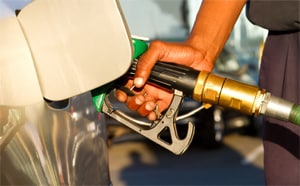MILESTONES: NIGERIA
By Michael Shari
The government of Nigeria took a calculated political risk when it removed gasoline subsidies on January 1.
 |
|
Paying at the pump: Nigeria ends gasoline subsidies |
The sudden move more than doubled local prices at the pump, igniting protests across the West African country of 160 million people, most of whom earn less than $2 a day. The government argues that ending the subsidies will free up one-quarter of Nigeria’s federal budget—and that the money will be spent on new infrastructure and housing. If successful, the government’s plan could create opportunities for foreign investors in massive construction projects.
Nigeria’s economy grew by an estimated 7% last year, while the US and Europe struggled. Goldman Sachs’ research has found that Nigeria’s economy has the potential to overtake that of South Africa within a few decades and even grow as large as that of Germany today.
“This [removal of subsidies] is going to have a magnificent impact on a country where the government is truly making great strides in empowering the private sector,” says Jonathan Auerbach, managing director of Auerbach Grayson, a stock brokerage in New York that invests—for its clients—on global exchanges, including the Nigerian Stock Exchange.
The government said the subsidies were wasteful and had discouraged investment in the petroleum industry of OPEC’s most populous member state. Attacks on petroleum refineries in the oil-rich south by militants demanding a redistribution of the oil wealth have been blamed for declines in production and overall inefficiency. As a result, Nigeria spent more than $16 billion on gasoline imports in 2011 alone.
The political stakes are high for Nigerian president Goodluck Jonathan. A similar move triggered riots that brought an abrupt end to the 33-year dictatorship of the late president Suharto of Indonesia, another major oil exporter, in May 1998. President Jonathan’s advantage is that his government was democratically elected last April, which, Auerbach argues, will help it survive the protests.



